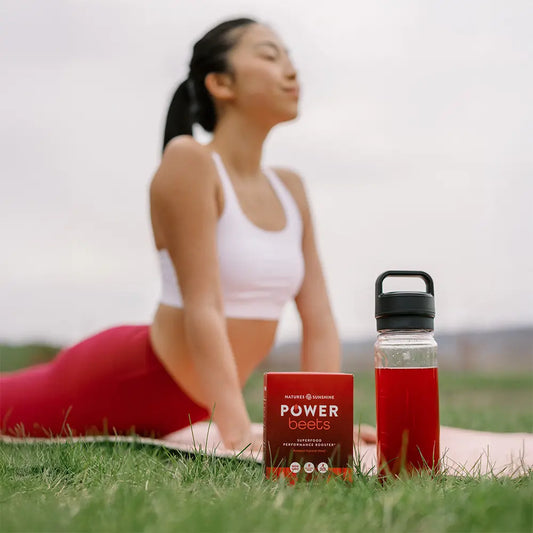Healthy Bowel Habits

Although they’re not a topic for polite conversation, bowel problems are surprisingly common, and affect most of us at some stage of life. Here’s a handy guide to help you maintain healthy bowel habits.
What’s normal?
When it comes to going to the toilet, definitions of ‘normal’ differ widely, and going to the loo anywhere from several times a day to several times a week is considered within the normal range. From the point of view of natural therapists, passing a bowel motion at least once every day is considered ideal.
Equally important is the ease with which you go to the toilet. If you experience any pain, straining or have to sit on the toilet for a long time, you’re suffering from constipation, and it’s time to review your dietary and lifestyle habits.
On the other hand, if you’re going to the toilet frequently, sometimes need to go urgently, or your bowel motions are watery or semi-liquid, you may need to consult a health professional to help determine the cause of your diarrhoea.
Constipation
Stools are composed of water, indigestible fibre (and sometimes undigested foods, such as corn, peas and tomato skins), and bodily wastes such as old cells, bacteria, cholesterol, hormones and other compounds.
The most common causes of constipation include not eating enough fibre, not drinking enough fluid, inadequate exercise, and ignoring the urge to go. Travel and dietary changes can also influence bowel habits from time to time.
Some medical conditions can also contribute to delayed bowel emptying. Examples include depression, nerve problems affecting the bowel, certain genetic tendencies, and the use of iron supplements and some other medications. If these issues affect you, take steps to restore your bowel regularity, because the longer the faeces are held in the bowel, the more water is absorbed from them, making the stool dryer and more difficult to pass. At the same time, toxic compounds from the faeces can be reabsorbed back into the blood stream.
Restoring regularity is often achieved using a five-pronged approach:
- Fibre: Fibre is essential for bulking and softening the stools. It’s found in all fruits, vegetables, whole grains, legumes and nuts. When additional fibre is required, taking a fibre supplement may be beneficial. Psyllium hulls are among the best options, as the water-absorbing type of fibre they contain swells to 8-14 times its original size in the body, creating a bulky, soft stool that’s easy to pass. Psyllium hulls may be particularly beneficial for those who suffer from constipation-induced haemorrhoids, and can also aid cholesterol management.
- Water: Without adequate water, stools will be hard, dry and difficult to excrete. Note that inadequate water may exacerbate constipation problems if you’re taking a fibre supplement such as psyllium, as sufficient fluids are required in order for the fibre to work appropriately.
- Exercise: Movement promotes bowel movements! Exercising stimulates the muscles in the bowel, which in turns helps your intestinal contents move through the bowel with ease. Certain yoga positions (asanas) can be particularly helpful for encouraging bowel movements – ask a qualified yoga instructor for advice.
- Bowel habits: Never ignore the urge to go to the loo. It’s likely to be strongest in the morning, but also often occurs after meals when the stomach expands, promoting peristalsis (the wave-like contraction of the intestinal tract) and triggering defecation. In the elderly, this reflex (gastro-colic reflex) is weak so getting into a routine will help.
- Herbs: Herbs can be helpful when bowel habits need an extra push. Plants that have traditionally been used as laxatives include Cascara, Buckthorn and Rhubarb, help trigger peristalsis and tone the muscles of the digestive tract. As these herbs occasionally cause griping pain, look for a formula that also contains ingredients with antispasmodic and calming effects on the bowel, such as Ginger and Capsicum (Cayenne). Note that it is important that all laxatives including herbs are taken with plenty of water.
Diarrhoea
Causes of diarrhoea include food poisoning and other infections, gastroenteritis, dietary changes, some medications, and bowel conditions such as Crohn’s disease, ulcerative colitis and irritable bowel syndrome (IBS). Some of these conditions can be serious and may impair your ability to absorb nutrients, so it’s vital that any ongoing or recurrent diarrhoea problem is professionally diagnosed and treated. Seek urgent medical attention if the diarrhoea is accompanied by vomiting, severe pain, if blood is present in the stool or if symptoms persist for more than 48 hours.
During and immediately after an acute episode of diarrhoea, stick to small quantities of light, easily digested food, and increase your fluid intake. The very young and the elderly can easily become dehydrated during diarrhoea, and in such cases it’s advisable to consume electrolyte replacement drinks. Raspberry leaf is traditionally used to assist relief of mild diarrhoea, due to its astringent properties.
Irritable bowel syndrome
IBS is a common ailment with symptoms that can include both constipation and diarrhoea (usually alternating), abdominal bloating, pain and flatulence. The pain can range from a dull ache to spasmodic, colicky pain and is often improved by passing wind or a bowel movement.
The causes of IBS are not fully understood, it may be due to abnormal functioning of the nerves in the wall of the large intestine interfering with peristaltic actions, or gut bacterial imbalance.
If you suspect you have IBS, talk to your GP in order to rule out any other medical problems, including dietary allergies or sensitivities (for example to gluten or dairy products).
Strategies to help relieve IBS symptoms include:
- Avoiding wind-promoting food and drinks, such as cabbage, onions, Brussels sprouts, chewing gum and carbonated beverages
- Chew food well, with your mouth closed so you don’t swallow large amounts of air
- Increasing fibre consumption by eating plenty of fruits, vegetables, whole grains and legumes (although this may exacerbate symptoms in some people)
- Drinking plenty of filtered water
- Taking probiotics or eating live yoghurt to optimise the health of the friendly bacteria in your bowel
- Maintaining a regular exercise and relaxation program to help manage your stress levels
- Taking antispasmodic herbs such as Cramp Bark, Peppermint, Fennel and Ginger to relieve wind pain and help relax contracted bowel muscles
What your stools say about your health
Stools should be soft, but firm and easy to pass, light to dark brown in colour and banana shaped. Talk to your healthcare professional if your stools have any of the following characteristics, which may indicate dietary or health issues:
- Colour: Stools that are pale or clay-coloured suggest low levels of bile, indicating possible liver or gall bladder problems. Unless you’ve been eating beetroot, stools that are bright or dark red may indicate the presence of blood, and require urgent medical investigation.
- Size and shape: Stools that are pencil-thin or ribbon-like suggest severe contraction of the bowel or the presence of some form of obstruction, and again, it is advisable to see your doctor. Small, pellet-shaped stools are a sign of constipation.
- Texture: The presence of undigested food suggests you may not be chewing your food adequately, but in some cases may indicate a malabsorption syndrome (eg. ulcerative colitis).
- Smell: Abnormally foul odour may indicate bacterial imbalance or a bowel infection.
- Floating: Stools that float may contain excessive amounts of fat or gas.
- Mucus: Consult your doctor if your stool contains visible mucus, as this may be indicative of bacterial infection, IBS or other inflammatory bowel disease.
Herbs & Health recommends:
Nature’s Sunshine
- Lower Bowel Stimulant
- Psyllium Hulls
- Bowel Calm


